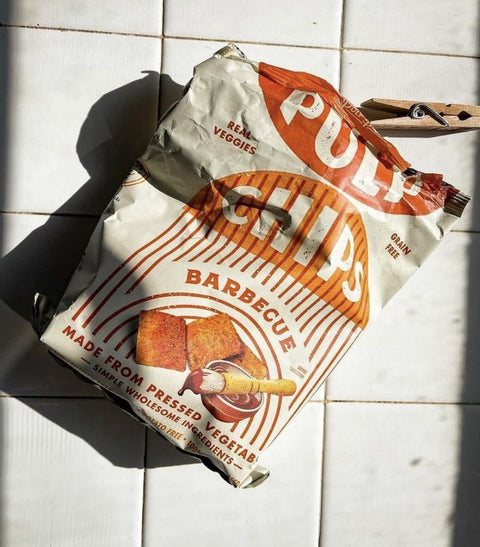
People always ask us : how do you sweeten your seasonings for Pulp Chips, the healthier way?
It took some thought for us to find healthier alternatives that would boost sweetness in our seasonings for products like our Jalapeño Lime Pulp Chips, and our Spicy Barbecue Pulp Chips. We thought it would be helpful to break our decision-making process down for you here!
Breaking it down: what is sugar?
Sugar is one type of carbohydrate, as are fiber and starch. Carbohydrates are essential macronutrients (nutrients the body uses in large amounts to function). However, sugar, as a carbohydrate, is not in of itself an essential macronutrient.
What is the issue with sugar in our diet?
Much of the sugar we consume today is processed, meaning that it is added to foods in such a way that it does not provide any nutritional benefits. Consuming excessive amount of added sugar can lead to health problems including high blood sugar, insulin resistance, metabolic syndrome, dental issues such as cavities, increased triglycerides, obesity and type 2 diabetes, according to research from Johns Hopkins.
That's not to say ALL sweeteners don't contain nutritional benefits. Less-processed sugars like fruit juice, honey, molasses and maple syrup are some examples of nutritious sweeteners.
Lesser known natural sweeteners, such as the lucuma we use in our Pulp Chips, also contain some added benefits, providing everything from fiber to antioxidants and minerals.

Our favorite thing about using lucuma as a sweetener? It contains both soluble and insoluble fiber. Insoluble fiber adds bulk to your stool and prevents constipation by helping food move smoothly through your gut, while soluble fiber feeds your beneficial gut bacteria. In the process of digestion, lucuma produces molecules that can help to alleviate inflammation and improve symptoms of gut disorders, including irritable bowel syndrome (IBS), Crohn’s disease, and ulcerative colitis.
One tablespoon (7.5 grams) of lucuma powder also provides some calcium, iron, potassium, niacin, and vitamin C -- which is better than most processed sweeteners that lack any meaningful nutrition.
What's the best, healthiest type of sweetener to use?
We prefer to use natural, nutritious sweeteners in our products, as opposed to sugar substitutes, which are rising in popularity.
Sugar substitutes fall into three categories: artificial sweeteners, sugar alcohols and novel sweeteners. The new category of "novel sweeteners" are what you're seeing in a ton of health food products these days, including monk fruit, stevia and allulose. These sweeteners are derived from natural sources, and tend to be less processed than alternatives like artificial sweeteners and sugar alcohols. They are not a significant source of calories or sugar, so they don’t lead to weight gain or blood sugar spikes.
Overall, depending on your health goals, you might opt for natural sweeteners or superfoods like lucuma fruit powder (which we use in to sweeten our barbecue and jalapeño lime flavors with added benefits) for a nutritional boost, or sugar substitutes like stevia, monk fruit and allulose, which won't cause a spike in blood sugar levels. At Pulp Pantry, we use negligible amounts of monk fruit in our seasonings to give that extra boost of sweetness on top of the lucuma fruit that provides the bulk of sweetness for our seasonings.





